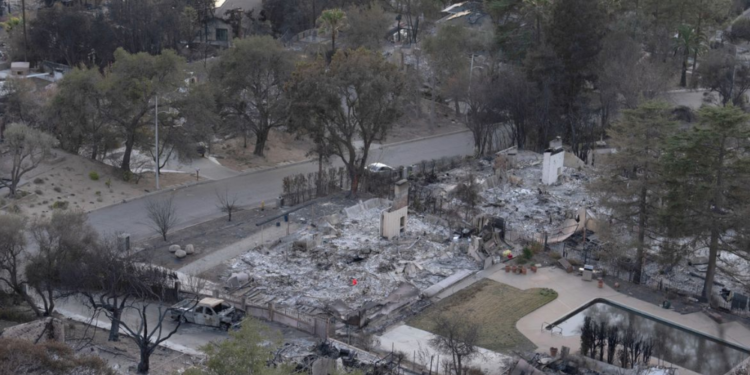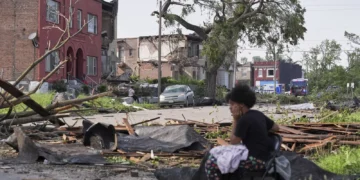Jan 29, 2025 Story by: Editor
A new data brief from the UCLA Ralph J. Bunche Center for African American Studies, the UCLA Center for Neighborhood Knowledge, and the UCLA Latino Policy and Politics Institute highlights the severe and disproportionate impact of the Eaton Fire on Altadena’s Black community.
“Altadena’s Black community has long served as a symbol of resilience and opportunity in the Los Angeles region, but the Eaton Fire exposes how decades of segregation and the legacy of redlining practices have left Black households more vulnerable,” said Lorrie Frasure, a professor of political science and African American studies who directs the Bunche Center. “The recovery process must acknowledge this historic legacy and the disparities stemming from it to provide tailored support that ensures the restoration and future of this vibrant community.”
According to the report, at least 2,800 Black households were forced to evacuate within a day of the fire’s outbreak on Jan. 7, 2025. The flames devastated neighborhoods historically home to Black residents, causing a significant number of damaged or destroyed homes. Now, the middle-class enclave faces not only the challenge of rebuilding but also addressing long-standing systemic inequities that threaten its sustainability.
Key Findings from the Report:
- Disproportionate impact: Black households were significantly affected, with 61% located within the fire perimeter compared to 50% of non-Black households. Nearly half (48%) of Black households suffered major damage or destruction, while non-Black households experienced this at a lower rate (37%).
- Effects of redlining and housing discrimination: Decades of discriminatory housing policies placed many Black families in the areas hardest hit by the fire, increasing their vulnerability.
- Aging homeowners at risk: With 57% of Black homeowners in Altadena over the age of 65, many may struggle with recovery due to inadequate insurance coverage and potential financial exploitation during the rebuilding process.
- Threats to generational wealth and homeownership: The fire’s destruction could disrupt the ability of Black families to pass down property to younger generations. Additionally, rising property values and existing barriers to homeownership make it increasingly difficult for younger Black residents to purchase homes, threatening the long-term presence of Altadena’s Black community.
The report emphasizes that Black residents affected by the Eaton Fire—which burned more than 14,000 acres—will require targeted solutions to address the systemic inequities deepened by this disaster.
“The Eaton Fire has the potential to accelerate the decline of Altadena’s Black community, erasing generations of progress,” Frasure said. “Policymakers and relief organizations must act swiftly to protect the legacy and future of this historic community.”
Paul Ong, research professor and director of the UCLA Center for Neighborhood Knowledge, underscored the broader implications of the fire’s impact:
“It is critical to place the consequences of the Eaton Fire in a broader historical and societal context,” Ong said. “Doing so highlights the numerous challenges and inequalities African Americans face in the United States today.”
The authors stress that Altadena, long a center of Black homeownership and cultural vibrancy, now faces an uncertain future. They argue that disaster recovery efforts must be equitable, not only addressing immediate restoration but also ensuring the long-term sustainability of historically Black communities that remain vulnerable to disasters. Source: UCLA Newsroom

















